
Artificial Intelligence (AI) and intelligent automation have the power to revolutionize traditional healthcare practices, offering immense potential for transformation. By streamlining operations and introducing innovative approaches, they are poised to drive remarkable advancements in patient outcomes. Automation has become a transformative force in nearly every industry, and healthcare administration is no exception. The complex and dynamic nature of healthcare operations demands efficient and accurate management to ensure optimal patient care. In this digital age, automation technologies have emerged as indispensable tools in streamlining administrative processes, reducing errors, and enhancing overall efficiency in healthcare administration.
The role of automation in healthcare administration encompasses various aspects, ranging from appointment scheduling and patient registration to electronic health records (EHR) management, billing and claims processing, inventory control, and communication among healthcare teams. Automation tools, such as Zoho, provide healthcare administrators with the means to simplify and streamline these processes, ultimately leading to improved patient outcomes.
Streamlining Administrative Processes
Streamlining administrative processes in healthcare is a critical undertaking that can have a profound impact on the efficiency and effectiveness of patient care. By implementing automation tools and technologies, healthcare organizations can revolutionize tasks such as appointment scheduling and patient registration. Automation simplifies the process of:
Booking Appointments: easily schedule visits while reducing errors and eliminating scheduling conflicts.
Patient Registration: minimize paperwork, enabling the secure and efficient collection of patient information
Health Record Management: records are updated, retrieved, and shared across multiple health departments, facilitating collaboration
By streamlining administrative processes, healthcare providers can not only optimize resource allocation but also enhance the overall patient experience, ultimately leading to improved healthcare delivery and patient outcomes.
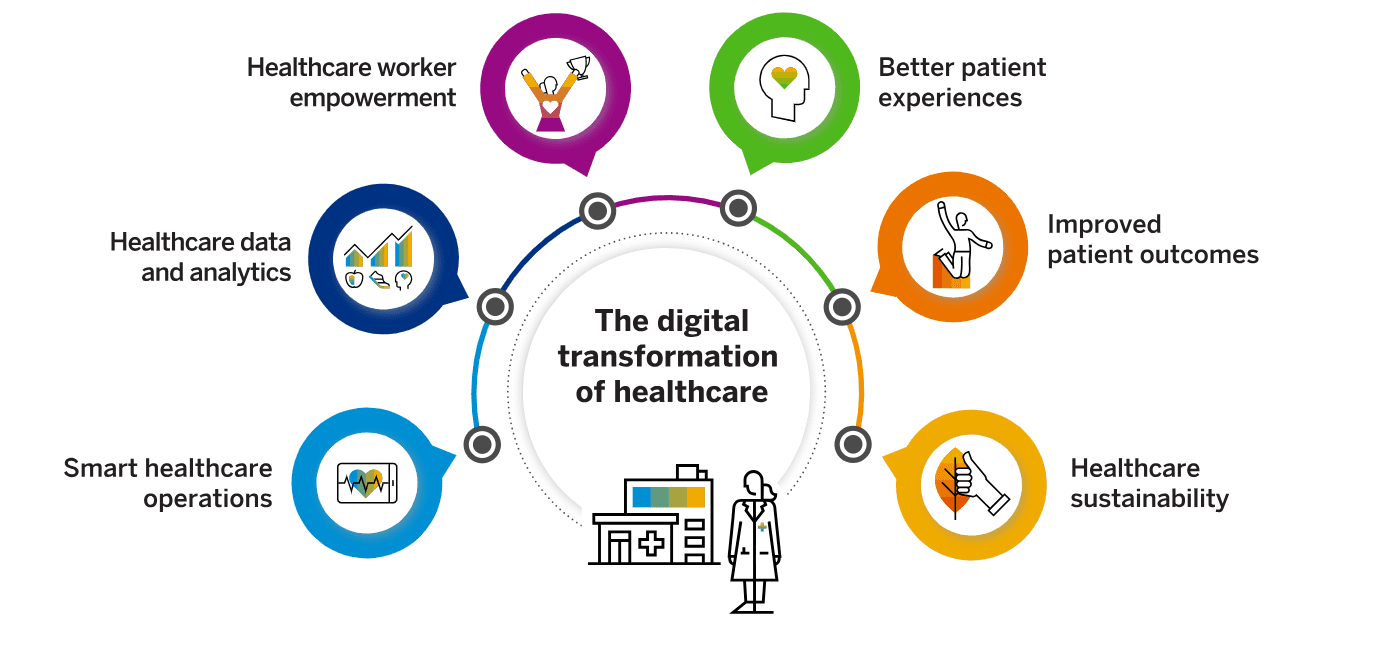
Electronic Health Records (EHR) management
One of the key advantages of EHR management is the consolidation of patient data into a single, comprehensive record accessible to authorized healthcare professionals. This integration allows for a holistic view of a patient's medical history, including past diagnoses, treatment plans, medications, allergies, and laboratory results. By having instant access to this wealth of information, healthcare providers can make more informed clinical decisions, resulting in improved patient care and safety.
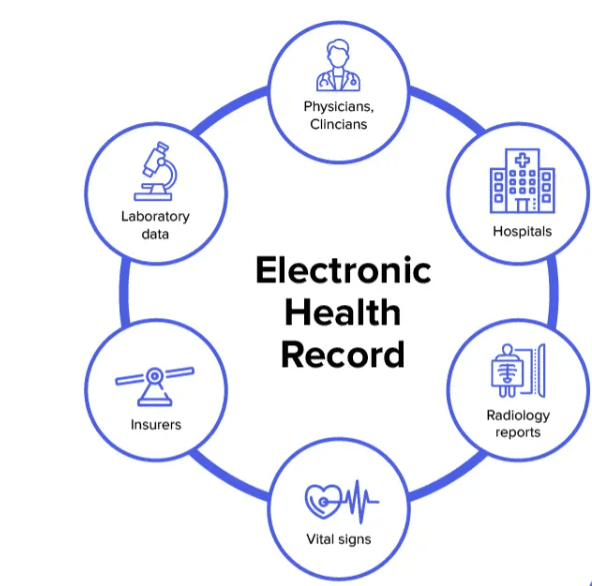
Billing and Claims Processing
Streamlining administrative processes in healthcare holds immense potential to revolutionize the efficiency and effectiveness of patient care. By implementing automation tools and leveraging cutting-edge technologies, healthcare organizations can reimagine tasks such as appointment scheduling and patient registration. Automation simplifies the process of booking appointments, granting patients the ease to schedule their visits while simultaneously reducing errors and eliminating scheduling conflicts. Patient registration undergoes a transformative shift through the implementation of automated systems, minimizing paperwork and enabling the secure and efficient collection of patient information.
Furthermore, automation enhances the accuracy and accessibility of electronic health records (EHR) management. Electronic records can be seamlessly updated, retrieved, and shared across different healthcare departments, fostering collaboration and ensuring comprehensive and up-to-date patient information. By streamlining administrative processes, healthcare providers optimize resource allocation and enhance the overall patient experience, ultimately leading to improved healthcare delivery and patient outcomes.
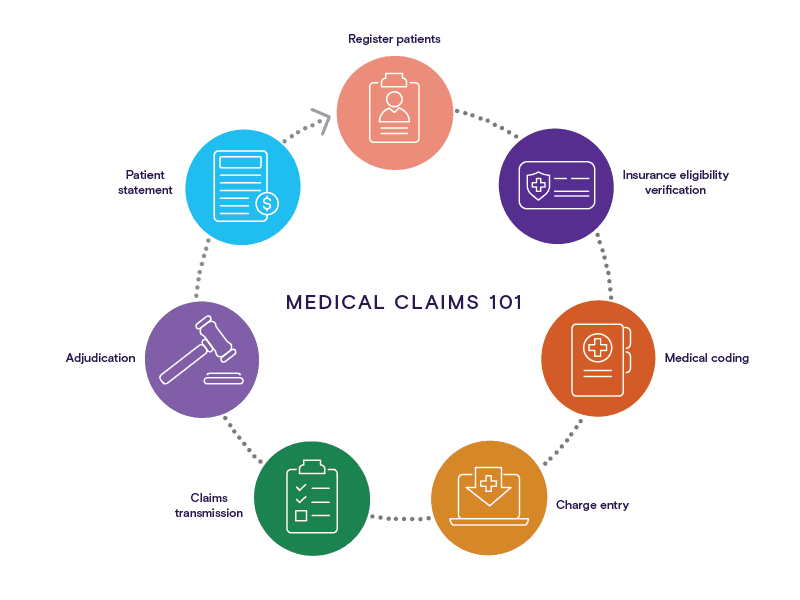
Enhancing Operational Efficiency
Enhancing operational efficiency in healthcare is a paramount objective that can be achieved through various strategies and technologies. By adopting automation tools and leveraging innovative approaches, healthcare organizations can streamline processes, optimize resource utilization, and improve overall productivity. Automation technologies like Zoho enable efficient inventory and supply chain management, minimizing stock shortages and reducing wastage. Real-time tracking and automated ordering systems ensure the availability of essential medical supplies, enhancing operational efficiency and patient safety. Additionally, automation facilitates seamless communication and collaboration among healthcare teams, promoting effective coordination and faster decision-making.
By leveraging automation for data analytics and reporting, healthcare administrators can gain valuable insights, identify areas for improvement, and make informed decisions to optimize operations. Streamlining administrative tasks such as appointment scheduling, patient registration, and billing processes further contributes to operational efficiency by reducing errors, improving patient experiences, and accelerating revenue cycles. Overall, enhancing operational efficiency through automation empowers healthcare organizations to deliver high-quality care, optimize resources, and meet the ever-growing demands of the healthcare industry.
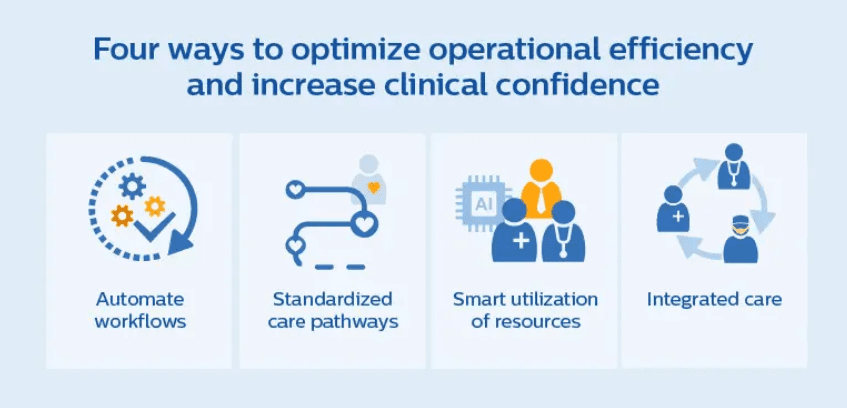
Data Analytics and Decision Support
Data analytics and decision support are essential pillars of healthcare administration, serving as guiding beacons for well-informed decision-making and continuous improvement. By harnessing the immense power of data, healthcare organizations unlock invaluable insights that propel operational efficiency, resource optimization, and superior patient outcomes. Automation tools like Zoho bestow robust data analytics capabilities, empowering healthcare administrators to efficiently scrutinize vast datasets. From unraveling intricate trends and patterns to forecasting future needs, data analytics empowers administrators to make shrewd decisions that leave a lasting positive impact on the organization.
Essentially, data analytics fuels strategic planning and performance evaluation, allowing administrators to assess key performance indicators and monitor progress towards organizational objectives. Armed with comprehensive and trustworthy data, healthcare administrators unveil untapped areas for advancement, implement evidence-based practices, and spearhead the charge of continuous quality improvement initiatives. In this era of dynamic healthcare systems, embracing data analytics and decision support grants healthcare administrators the prowess to deftly navigate complexities, tackle challenges head-on, and optimize decision-making for the ultimate goal of exceptional patient care and organizational triumph.
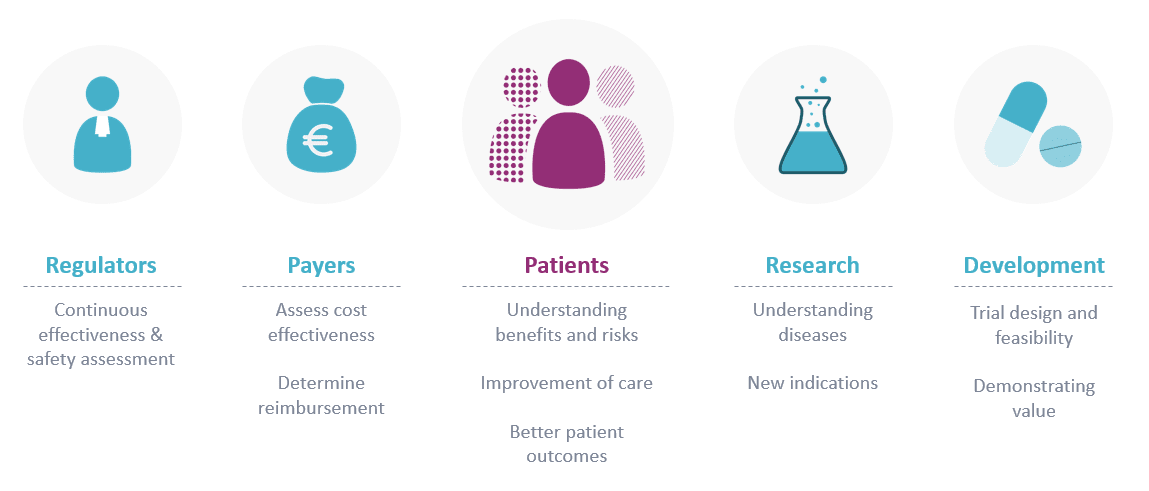
Data Security & Privacy
Data security and privacy stand as paramount concerns within the realm of healthcare administration, demanding unwavering dedication to safeguarding sensitive information and preserving patient confidentiality. In the digital age, automation tools such as Zoho have risen to the challenge, placing data security at the forefront by implementing robust measures and stringent protocols. These automation tools employ cutting-edge encryption techniques and secure data transmission channels, fortifying patient records and personal information against unauthorized access. Access controls and user authentication mechanisms serve as additional safeguards, ensuring that only authorized personnel can access and modify sensitive data.
Striving for compliance with regulations like the Health Insurance Portability and Accountability Act (HIPAA), these automation tools uphold the highest standards of privacy and confidentiality. Furthermore, audit trails and logging functionalities are integrated, enabling meticulous monitoring of data access and modifications to promptly detect and respond to any potential breaches. By prioritizing data security and privacy, healthcare organizations can foster trust among patients and stakeholders, affirming their commitment to preserving the sanctity of sensitive data.

